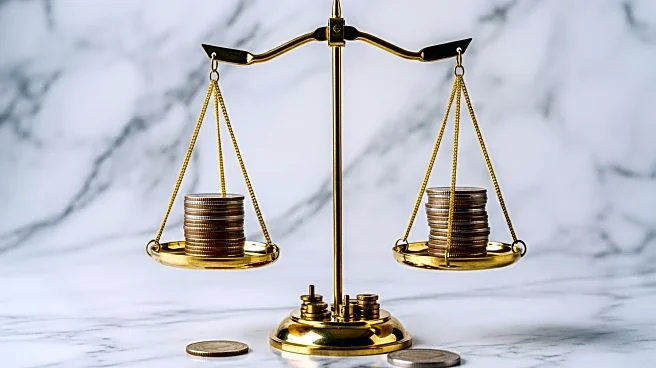What's Happening?
President Trump has signed a proclamation introducing a $100,000 annual fee for H-1B visa applications. This move is part of a broader effort to reform the program for highly skilled foreign workers, which has faced criticism for undercutting U.S. wages and displacing American workers. The H-1B visa program, established in 1990, aims to attract foreign professionals in fields like science, technology, engineering, and math. Critics argue that the program often benefits entry-level positions rather than senior roles requiring unique skills. The new fee is expected to impact companies that rely on foreign workers, potentially increasing operational costs.
Why It's Important?
The imposition of a $100,000 fee on H-1B visa applications could significantly affect U.S. tech companies and other industries that depend on skilled foreign labor. By increasing the cost of hiring international workers, companies may face higher expenses, potentially leading to a reevaluation of their hiring practices. This change could also influence the competitive landscape, as firms may need to adjust their strategies to accommodate the new financial burden. Additionally, the move aligns with the Trump administration's focus on immigration reform, aiming to prioritize American workers and address concerns about wage suppression.
What's Next?
The new fee structure for H-1B visas is likely to face legal challenges, as stakeholders in the tech industry and other sectors may contest the financial implications. Companies that rely heavily on foreign talent might explore alternative solutions, such as increasing investment in domestic workforce development or seeking other visa options. The administration's decision could also prompt discussions on broader immigration policy reforms, as businesses and advocacy groups assess the impact on the U.S. labor market and international competitiveness.










